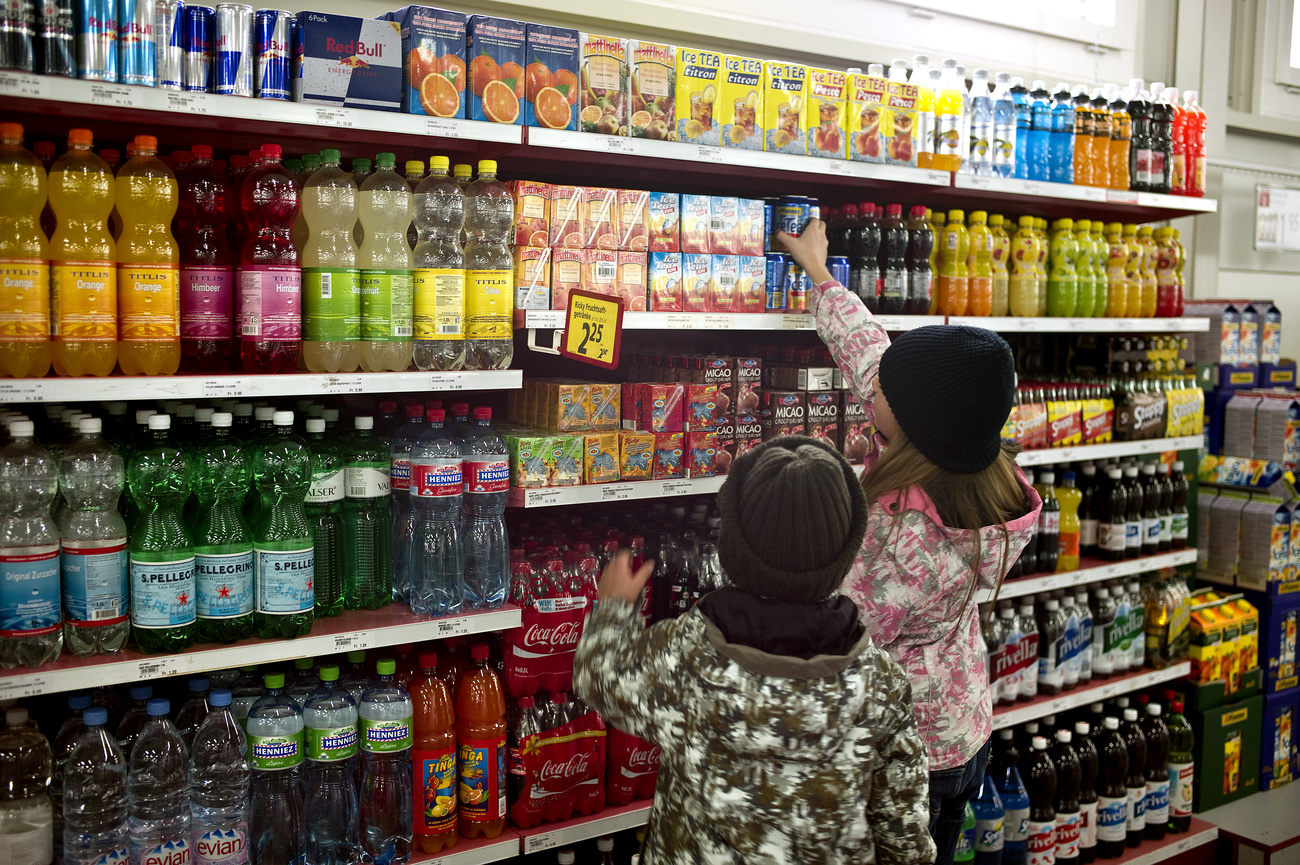
Swiss supermarket products for children have too much sugar

The overwhelming majority of products with packaging designed to appeal to children contain too much sugar, salt or fat, report Le Matin Dimanche and SonntagsZeitung newspapers.
This is according to a survey conducted around Easter by the consumer organisation Fédération romande de consommateurs (FRC) and its counterparts in the German and Italian-speaking parts of Switzerland.
These consumer groups analysed 344 goods targeting children aged over three years sold in supermarkets Coop, Migros, Aldi and Lidl. Chocolate bunnies and chicks were not included.
They found that 94% of the products surveyed did not meet World Health Organization (WHO) norms, mostly because of too much sugar (277 products).
“We know that sweets contain sugar, but many packets have nice images of corn, milk or fruit, leading parents to think they are healthy,” Nathalie Farpour-Lambert, a doctor at Geneva University Hospital, told Le Matin Dimanche.
Children are easy prey for marketing, because if they see attractive animals or people mascots on packaging, they think the product is better, according to FRC food specialist Barbara Pfenniger. “Some countries have actually banned the use of such pictures on unhealthy food,” she told the paper.
The FRC is calling for a Nutri-score food rating on all products with packaging targeting children.

In compliance with the JTI standards
More: SWI swissinfo.ch certified by the Journalism Trust Initiative























You can find an overview of ongoing debates with our journalists here . Please join us!
If you want to start a conversation about a topic raised in this article or want to report factual errors, email us at english@swissinfo.ch.